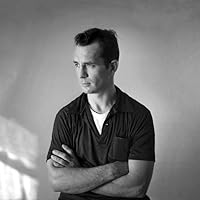Dharma Quotes
Quotes tagged as "dharma"
Showing 1-30 of 240
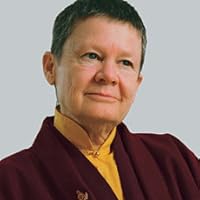
“Things falling apart is a kind of testing and also a kind of healing. We think that the point is to pass the test or to overcome the problem, but the truth is that things don’t really get solved. They come together and they fall apart. Then they come together again and fall apart again. It’s just like that. The healing comes from letting there be room for all of this to happen: room for grief, for relief, for misery, for joy.”
― When Things Fall Apart: Heart Advice for Difficult Times
― When Things Fall Apart: Heart Advice for Difficult Times

“When the mind is exhausted of images, it invents its own.”
― Earth House Hold: Technical Notes & Queries to Fellow Dharma Revolutionaries
― Earth House Hold: Technical Notes & Queries to Fellow Dharma Revolutionaries

“The Buddha's original teaching is essentially a matter of four points -- the Four Noble Truths:
1. Anguish is everywhere.
2. We desire permanent existence of ourselves and for our loved ones, and we desire to prove ourselves independent of others and superior to them. These desires conflict with the way things are: nothing abides, and everything and everyone depends upon everything and everyone else. This conflict causes our anguish, and we project this anguish on those we meet.
3. Release from anguish comes with the personal acknowledgment and resolve: we are here together very briefly, so let us accept reality fully and take care of one another while we can.
4. This acknowledgement and resolve are realized by following the Eightfold Path: Right Views, Right Thinking, Right Speech, Right Conduct, Right Livelihood, Right Effort, Right Recollection, and Right Meditation. Here "Right" means "correct" or "accurate" -- in keeping with the reality of impermanence and interdependence.”
― The Dragon Who Never Sleeps: Verses for Zen Buddhist Practice
1. Anguish is everywhere.
2. We desire permanent existence of ourselves and for our loved ones, and we desire to prove ourselves independent of others and superior to them. These desires conflict with the way things are: nothing abides, and everything and everyone depends upon everything and everyone else. This conflict causes our anguish, and we project this anguish on those we meet.
3. Release from anguish comes with the personal acknowledgment and resolve: we are here together very briefly, so let us accept reality fully and take care of one another while we can.
4. This acknowledgement and resolve are realized by following the Eightfold Path: Right Views, Right Thinking, Right Speech, Right Conduct, Right Livelihood, Right Effort, Right Recollection, and Right Meditation. Here "Right" means "correct" or "accurate" -- in keeping with the reality of impermanence and interdependence.”
― The Dragon Who Never Sleeps: Verses for Zen Buddhist Practice
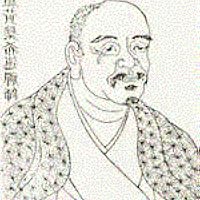
“Not till your thoughts cease all their branching here and there, not till you abandon all thoughts of seeking for something, not till your mind is motionless as wood or stone, will you be on the right road to the Gate.”
― The Zen Teaching of Huang Po: On the Transmission of Mind
― The Zen Teaching of Huang Po: On the Transmission of Mind

“Of course, even when you see the world as a trap and posit a fundamental separation between liberation of self and transformation of society, you can still feel a compassionate impulse to help its suffering beings. In that case you tend to view the personal and the political in a sequential fashion. "I'll get enlightened first, and then I'll engage in social action." Those who are not engaged in spiritual pursuits put it differently: "I'll get my head straight first, I'll get psychoanalyzed, I'll overcome my inhibitions or neuroses or my hang-ups (whatever description you give to samsara) and then I'll wade into the fray." Presupposing that world and self are essentially separate, they imagine they can heal one before healing the other. This stance conveys the impression that human consciousness inhabits some haven, or locker-room, independent of the collective situation -- and then trots onto the playing field when it is geared up and ready.
It is my experience that the world itself has a role to play in our liberation. Its very pressures, pains, and risks can wake us up -- release us from the bonds of ego and guide us home to our vast, true nature. For some of us, our love of the world is so passionate that we cannot ask it to wait until we are enlightened.”
― World as Lover, World as Self
It is my experience that the world itself has a role to play in our liberation. Its very pressures, pains, and risks can wake us up -- release us from the bonds of ego and guide us home to our vast, true nature. For some of us, our love of the world is so passionate that we cannot ask it to wait until we are enlightened.”
― World as Lover, World as Self
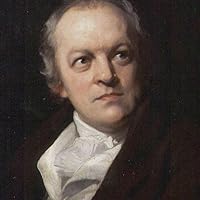
“The apple tree never asks the beech how he shall grow, nor the lion, the horse, how he shall take his prey.”
― The Marriage of Heaven and Hell
― The Marriage of Heaven and Hell

“In the first movement, our infancy as a species, we felt no separation from the natural world around us. Trees, rocks, and plants surrounded us with a living presence as intimate and pulsing as our own bodies. In that primal intimacy, which anthropologists call "participation mystique," we were as one with our world as a child in the mother's womb.
Then self-consciousness arose and gave us distance on our world. We needed that distance in order to make decisions and strategies, in order to measure, judge and to monitor our judgments. With the emergence of free-will, the fall out of the Garden of Eden, the second movement began -- the lonely and heroic journey of the ego. Nowadays, yearning to reclaim a sense of wholeness, some of us tend to disparage that movement of separation from nature, but it brought us great gains for which we can be grateful. The distanced and observing eye brought us tools of science, and a priceless view of the vast, orderly intricacy of our world. The recognition of our individuality brought us trial by jury and the Bill of Rights.
Now, harvesting these gains, we are ready to return. The third movement begins. Having gained distance and sophistication of perception, we can turn and recognize who we have been all along. Now it can dawn on us: we are our world knowing itself. We can relinquish our separateness. We can come home again -- and participate in our world in a richer, more responsible and poignantly beautiful way than before, in our infancy.”
― World as Lover, World as Self
Then self-consciousness arose and gave us distance on our world. We needed that distance in order to make decisions and strategies, in order to measure, judge and to monitor our judgments. With the emergence of free-will, the fall out of the Garden of Eden, the second movement began -- the lonely and heroic journey of the ego. Nowadays, yearning to reclaim a sense of wholeness, some of us tend to disparage that movement of separation from nature, but it brought us great gains for which we can be grateful. The distanced and observing eye brought us tools of science, and a priceless view of the vast, orderly intricacy of our world. The recognition of our individuality brought us trial by jury and the Bill of Rights.
Now, harvesting these gains, we are ready to return. The third movement begins. Having gained distance and sophistication of perception, we can turn and recognize who we have been all along. Now it can dawn on us: we are our world knowing itself. We can relinquish our separateness. We can come home again -- and participate in our world in a richer, more responsible and poignantly beautiful way than before, in our infancy.”
― World as Lover, World as Self
“This is what the path of Dharma is like. It's not that you have to do all the practices. It is sufficient to take just one of them, whichever one you really have an affinity with, and through practicing that one alone, for the rest of your life, you will achieve enlightenment. Whichever practice you choose doesn't matter; they are all valid methods for achieving enlightenment—if you practice. The key is to practice with diligence for the rest of your life.”
― The Union of Dzogchen and Mahamudra
― The Union of Dzogchen and Mahamudra

“This stuff of a past not worthily lived is also medicine.”
― The Fruitful Darkness: A Journey Through Buddhist Practice and Tribal Wisdom
― The Fruitful Darkness: A Journey Through Buddhist Practice and Tribal Wisdom
“Although I too am within Amida's grasp,
Passions obstruct my eyes and I cannot see him;
Nevertheless, great compassion is untiring and illumines me always.”
―
Passions obstruct my eyes and I cannot see him;
Nevertheless, great compassion is untiring and illumines me always.”
―
“Naturally occurring timeless awareness—utterly lucid awakened mind—
is something marvelous and superb, primordially and spontaneously present.
It is the treasury from which comes the universe of appearances and possibilities, whether of samsara or nirvana.
Homage to the unwavering state, free of elaborations.”
―
is something marvelous and superb, primordially and spontaneously present.
It is the treasury from which comes the universe of appearances and possibilities, whether of samsara or nirvana.
Homage to the unwavering state, free of elaborations.”
―
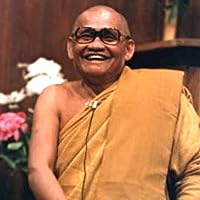
“Buddhism is a religion of the heart. Only this. One who practices to develop the heart is one who practices Buddhism [...] Use your heart to listen to the Teachings, not your ears.”
― Reflections
― Reflections
“All phenomena are embraced within a single self-knowing awareness.
Even though they arise as the totality of samsara and nirvana,
the phenomena of the world of appearances and possibilities—
limitless, boundless—arise from basic space.
Therefore, they are subsumed within basic space from which the first arise.”
―
Even though they arise as the totality of samsara and nirvana,
the phenomena of the world of appearances and possibilities—
limitless, boundless—arise from basic space.
Therefore, they are subsumed within basic space from which the first arise.”
―

“The Buddhist teachings move along a graduated path: first the stages of calm abiding and then the stages of deep insight. Through such gradual practices, lamas of the past gave birth to realization in their mental continuum and discovered primordial wisdom. All the qualities that the great masters found, we can attain as well. It all depends on our own efforts, our diligence, our deeper knowing, and our correct motivation. – 17th Karmapa”
― Music in the Sky: The Life, Art, and Teachings of the 17th Karmapa Ogyen Trinley Dorje
― Music in the Sky: The Life, Art, and Teachings of the 17th Karmapa Ogyen Trinley Dorje

“The Buddha taught non-attachment not as a means of escaping reality, but as a means of dealing with the fundamental nature of reality. There simply is nothing to which we can attach ourselves, no matter how hard we try. The idea of behaving without attachment springs from understanding that everything is empty. The self is empty, the desires of the self are empty, and the objects of those desires also are empty. In time, things will change and the conditions that produced our current desires will be gone. Why then, cling to them now? The Buddha taught that our tendency to cling to the illusion of permanence is a fundamental cause of suffering.”
― Describing the Indescribable
― Describing the Indescribable

“There is no realm in samsara where we have not taken birth, no samsaric pleasure we have not enjoyed, and no form of life we have not known over our countless stream of previous lives. Yet even now as humans most of us are like blind animals, unable to discern the patterns of life unfolding within us, leaving spiritual aims behind and chasing only the biological and emotional needs of the senses. Totally unaware of the spiritual methods that produce everlasting joy, we admire the ignoble and have distaste for the noble.”
― Refining Gold: Stages in Buddhist Contemplative Practice
― Refining Gold: Stages in Buddhist Contemplative Practice
“You think that if we accumulate so much wealth, we will be happy, trust me wealth will not make you happy but truthfulness and righteousness will. Therefore in your life give importance to probity, not wealth.”
―
―

“Teaching the Dharma to people who are skilled in dry intellectual speculations and cling to mere words of sophistry will result in slandering the Dharma. By slandering the Dharma the slanderer will accumulate evil karma, and you yourself, by being angry, will also gather misdeeds. Thus both teacher and recipient will gather evil karma through the Dharma. There is no need for that.
Do not make the profound instructions into a sales item but practice with perseverance in remote places and mingle your mind with the Dharma.”
― Dakini Teachings: A Collection of Padmasambhava's Advice to the Dakini Yeshe Tsogyal
Do not make the profound instructions into a sales item but practice with perseverance in remote places and mingle your mind with the Dharma.”
― Dakini Teachings: A Collection of Padmasambhava's Advice to the Dakini Yeshe Tsogyal

“Here is the explanation of how buddhahood acts for the welfare of sentient beings. Numerous reflections of the sun appear on the surface of many waters without leaving behind the single circle of the sun. Similarly, the truly and completely Enlightened One, the dharmakaya, without leaving behind the equality of the innate nature, magically appears, through the sambhogakaya and nirmanakaya, in accordance with the particular inclinations of those to be tamed in a number as great as the infinite space. Although acting for the benefit of beings, the dharmakaya holds no conceptual thinking.
For example, the sunlight does not conceive of benefiting beings. In the same way the two kayas hold no concepts of acting for the welfare of beings. The welfare of beings results from the power of aspiration.”
― Dakini Teachings: A Collection of Padmasambhava's Advice to the Dakini Yeshe Tsogyal
For example, the sunlight does not conceive of benefiting beings. In the same way the two kayas hold no concepts of acting for the welfare of beings. The welfare of beings results from the power of aspiration.”
― Dakini Teachings: A Collection of Padmasambhava's Advice to the Dakini Yeshe Tsogyal

“In the Ariyan Dhamma, the practice of meditation unfolds from start to finish as a process of mental purification. The process begins with the recognition of the dangers in unwholesome states: they are real pollutants of our being that need to be restrained and eliminated. The consummation is reached in the complete destruction of the defilements through the cultivation of their wholesome antidotes. The entire course of practice demands a recognition of the differences between the dark and bright qualities of the mind, and devolves on effort and diligence: "One does not tolerate an arisen unwholesome thought, one abandons it, dispels it, abolishes it, nullifies it" (MN 2). The hindrances are "causes of blindness, causes of ignorance, destructive to wisdom, not conducive to Nibbana" (SN 46:40). The practice of meditation purges the mind of its corruptions, preparing the way for the destruction of the cankers (asavakkhaya).”
―
―

“Wart discovered there were only two qualifications in the language, Done and Not-Done - which applied to all questions of value.”
― The Once and Future King
― The Once and Future King

“Not just words, but poetic meters could be personalized, viewed as divine, and were active in the world. In an entirely oral culture, the spoken word had consequences: one could indeed ‘do things with words’.”
― Religion in Human Evolution: From the Paleolithic to the Axial Age
― Religion in Human Evolution: From the Paleolithic to the Axial Age

“Living a long life is not really the ultimate purpose of human existence. Neither is happiness. It is in aligning to your dharma and duty that you can live the greatest life you are meant to have. Your soul prolongs your life as required. Usefulness, functionality and your highest possible contribution to the bigger whole, with more inclusive purpose, will empower and stretch your life’s continuity.”
― Higher Science of Longevity
― Higher Science of Longevity
“Their vision, their perception, heretofore limited, becomes unlimited. The mode of their actions becomes absolutely unique. They see each and every action in their God consciousness. They exist in the state of sadasiva. Each and every action of their life becomes glorious. This is the awareness that comes from the practice of pratibimba.”
― Kashmir Shaivism: The Secret Supreme
― Kashmir Shaivism: The Secret Supreme
All Quotes
|
My Quotes
|
Add A Quote
Browse By Tag
- Love Quotes 97k
- Life Quotes 75.5k
- Inspirational Quotes 72.5k
- Humor Quotes 43.5k
- Philosophy Quotes 29.5k
- Inspirational Quotes Quotes 27k
- God Quotes 26k
- Truth Quotes 23.5k
- Wisdom Quotes 23.5k
- Romance Quotes 23k
- Poetry Quotes 22k
- Death Quotes 20k
- Happiness Quotes 18.5k
- Life Lessons Quotes 18.5k
- Hope Quotes 18k
- Faith Quotes 18k
- Quotes Quotes 16.5k
- Inspiration Quotes 16.5k
- Spirituality Quotes 15k
- Religion Quotes 15k
- Motivational Quotes 15k
- Writing Quotes 14.5k
- Relationships Quotes 14.5k
- Life Quotes Quotes 14k
- Love Quotes Quotes 13.5k
- Success Quotes 13.5k
- Time Quotes 12.5k
- Motivation Quotes 12k
- Science Quotes 11.5k
- Knowledge Quotes 11k

